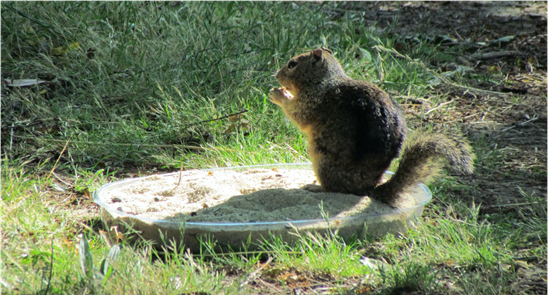
As human population grows, wildlife can experience new challenges; however, sometimes our presence can work to a species’ benefit. Chelsea Ortiz-Jimenez, a PhD student at UC Davis, studied risk perception of California ground squirrels at Briones Regional Park.
She put out plates with millet and sunflower seeds in a 10-meter grid pattern, monitored human traffic near each plate, and measured how much food was left at each station after a set period of time.
Interestingly, the squirrels ate more food in high human traffic areas and also ate more food close to their burrows. They also seemed to prefer areas with more less vegetation cover and more dirt.
All wildlife must balance meeting their food needs with the risk they perceive from predators. Squirrels were studied because they are adapted to spend time both among and apart from humans.
Based on this research, California ground squirrels living in large population centers like the Bay Area seem to perceive humans as lower risk than their other predators.
Ortiz-Jimenez’s study is part of a broader evolutionary ecology research effort at Mills College.
Learn more about our Mary Bowerman Science and Research Program.
Susan Ingersoll contributed to this blog post.
The presentation starts at 58:30 and ends at 1:11:00

